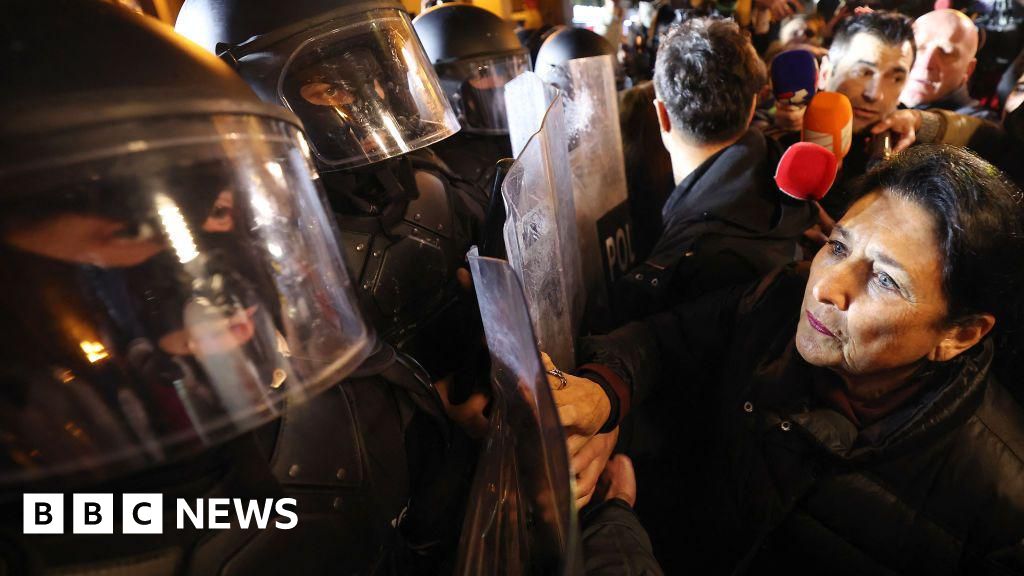President Bola Tinubu, on Thursday, inaugurated the Presidential Economic Coordination Council (PECC) and launched the Economic Stabilization Programme to ensure food security, improved power supply, enhanced social welfare and healthcare, increased energy production, and overall economic transformation.
Speaking at the inaugural meeting of the 31-member council held at the Council Chambers in Abuja, President Tinubu, who chairs the Council, underscored the need for innovative solutions to the country’s economic challenges, noting the importance of public-private partnerships in driving economic reforms.
”We have the challenge of energy security in Nigeria. We need to work together to improve our oil and gas sector, and we must also increase electricity generation and distribution throughout the country.
”We are determined to do that with your cooperation, collaboration, and recommendations. As a nation, it is so shameful that we are still generating 4.5GW of electricity.

”We must increase our oil production to two (2) million barrels per day within the next few months and we are determined to remove all entry barriers to investments in the energy sector while enhancing competitiveness,” the president stated.
President Tinubu announced measures, which will run concurrently with the National Construction and Household Support Programme, to stabilize the economy, enhance job creation, and foster economic security.
Nigerians need credible journalism. Help us report it.
PREMIUM TIMES delivers fact-based journalism for Nigerians, by Nigerians — and our community of supporters, the readers who donate, make our work possible. Help us bring you and millions of others in-depth, meticulously researched news and information.
It’s essential to acknowledge that news production incurs expenses, and we take pride in never placing our stories behind a prohibitive paywall.
Will you support our newsroom with a modest donation to help maintain our commitment to free, accessible news?
The measures under the Economic Stabilization Programme are as follows:
(1) Energy Security
The Energy Security Initiative, which includes power, oil and gas, aims to:
– Increase on-grid electricity to be delivered to homes and businesses from about 4.5 gigawatts to 6 gigawatts in six months;
– Increase oil production to 2 million barrels per day within the next 12 months; and
– Remove barriers to entry for investments into the sector to enhance competitiveness.
(2) Agriculture and Food Security
Under this plan, the aim is to:
– Increase staple crops grown by small-holder farmers from 127 million MT in 2023 to 135 million MT this year;
– Bolster production by partnering larger-scale commercial farmers;
– Support qualified farmers with satellite imagery for land use planning, crop rotation, and monitoring of agricultural expansion.
(3) Health and Social Welfare
In the health and social welfare sector, the federal government shall:
– Make essential medicines available at lower cost for 80-90 million Nigerians;
– Expand healthcare insurance coverage for 1 million vulnerable people via a Vulnerable Group Fund in collaboration with state governments;
– Redeploy 20,000 healthcare workers to provide services to 10-12 million patients in areas where they are most urgently needed;
– Power up 4,800 primary healthcare centres (PHCs), second tier, and third tier hospitals using renewable energy sources.
(4) Fiscal Measures
Some of the interventions to improve access to finance for the housing sector, MSMEs, and the manufacturing sector are:
– Youth-owned enterprises: Support for new and existing youth-owned enterprises across all 36 states of the Federation, creating 7,400 MSMEs within the next 6-12 months;
– MSME support: A six hundred and fifty billion naira (N650 billion) facility will provide lower-cost short-term facilities to youth-owned businesses, manufacturers and MSMEs across various industries; food processing, pharmaceutical, agriculture, and wholesale and retail trade. This financing will be based on their current and future receivables, company rating, and market demand for products;
– A Manufacturing Stabilization Fund will rejuvenate up to two hundred and fifty companies and deliver lower cost (9.0 per cent – 11.0 per cent) long-term facilities to large, medium-scale, and light manufacturers that produce finished goods for domestic and export markets;
– Sub-national Matching Fund: A Grow Nigeria Development Fund consisting of a single-digit interest rate loan portfolio with the Bank of Industry and a matching fund agreement with sub-national governments to grow MSMEs;
– Expanding the Bank of Industry’s Rural Development Programme: A fund to support rural economies in developing 300 new MSMEs for each state, including the Federal Capital Territory (Abuja), resulting in 11,100 new rural-based MSMEs across the Federation;

– Mortgage Finance Acceleration Facility: A facility that delivers affordable housing for all segments impacted by the cost-of-living challenge. This will support the construction of an additional 25,000 housing units.
These fiscal measures will improve access to finance for MSMEs and, in the process, create 4.7 million direct and indirect jobs over a six to 12-month period.
Emphasising the significance of the task ahead, Vice-President Kashim Shettima, who is the vice chairman of the Council, stated that President Tinubu is committed to proffering solutions to the nation’s economic challenges and not apportioning blame.
”I want to emphasise that when there is a will, there is always a way, and the president does not believe in apportioning blame. He believes in preparing solutions,” the vice president said.
The Coordinating Minister of the Economy and Minister of Finance, Wale Edun, made a presentation on the highlights of the Accelerated Stabilization and Advancement Plan earlier submitted to the President.
The plan details economic issues to be resolved in 2024 by sub-committees in the key sectors of agriculture and food security, energy (oil, gas, power), health and social welfare, and business support.
READ ALSO: Tinubu appoints board of consumer credit corporation
Other members of the Council include the Senate President, the Speaker of the House of Representatives, the Chairman of the Nigeria Governors Forum, twelve ministers, and the Governor of the Central Bank of Nigeria.
Members from the Organized Private sector include Aliko Dangote, Tony Elumelu, Abdul Samad Rabiu, Amina Maina, Segun Ajayi-Kadir, Funke Opeke, Doyin Salami, Patrick Okigbo, Kola Adesina, Segun Agbaje, Chidi Ajaere, Abdulkadir Aliu, and Rasheed Sarumi.

Ajuri Ngelale
Special Adviser to the President
Support PREMIUM TIMES' journalism of integrity and credibility
At Premium Times, we firmly believe in the importance of high-quality journalism. Recognizing that not everyone can afford costly news subscriptions, we are dedicated to delivering meticulously researched, fact-checked news that remains freely accessible to all.
Whether you turn to Premium Times for daily updates, in-depth investigations into pressing national issues, or entertaining trending stories, we value your readership.
It’s essential to acknowledge that news production incurs expenses, and we take pride in never placing our stories behind a prohibitive paywall.
Would you consider supporting us with a modest contribution on a monthly basis to help maintain our commitment to free, accessible news?
TEXT AD: Call Willie - +2348098788999

















 English (US) ·
English (US) ·